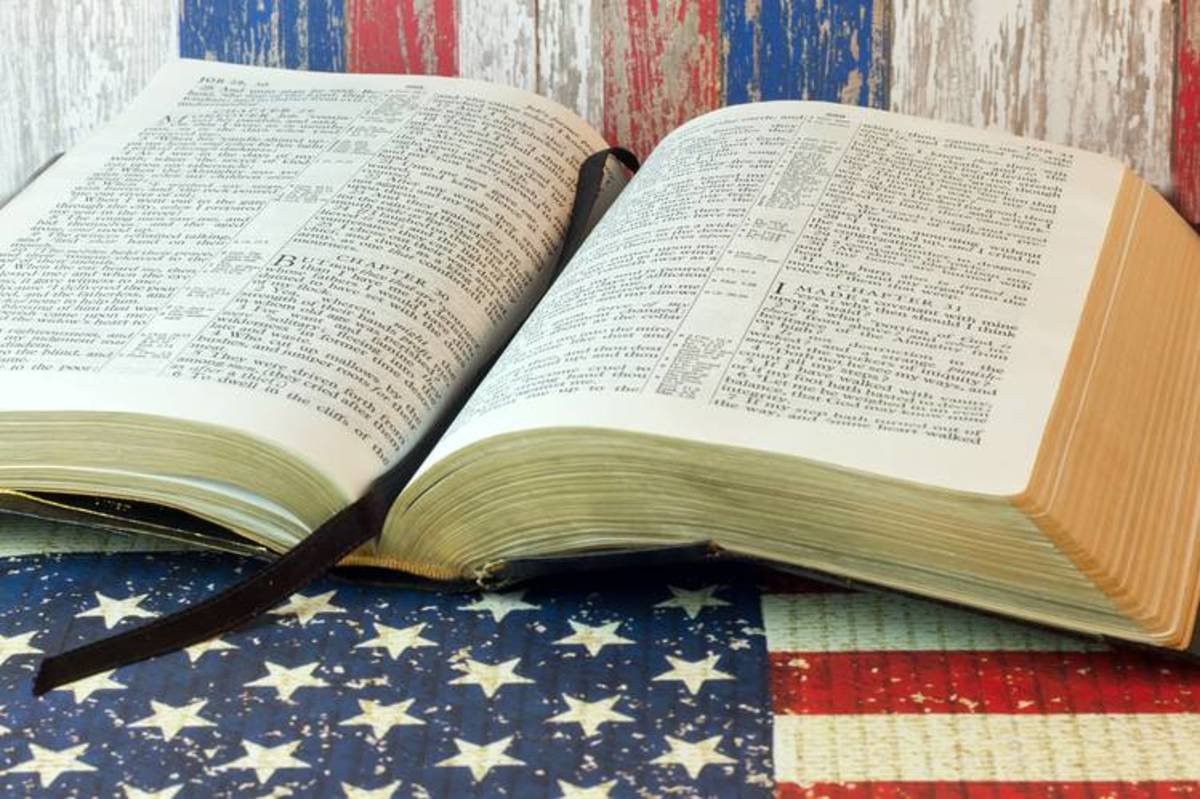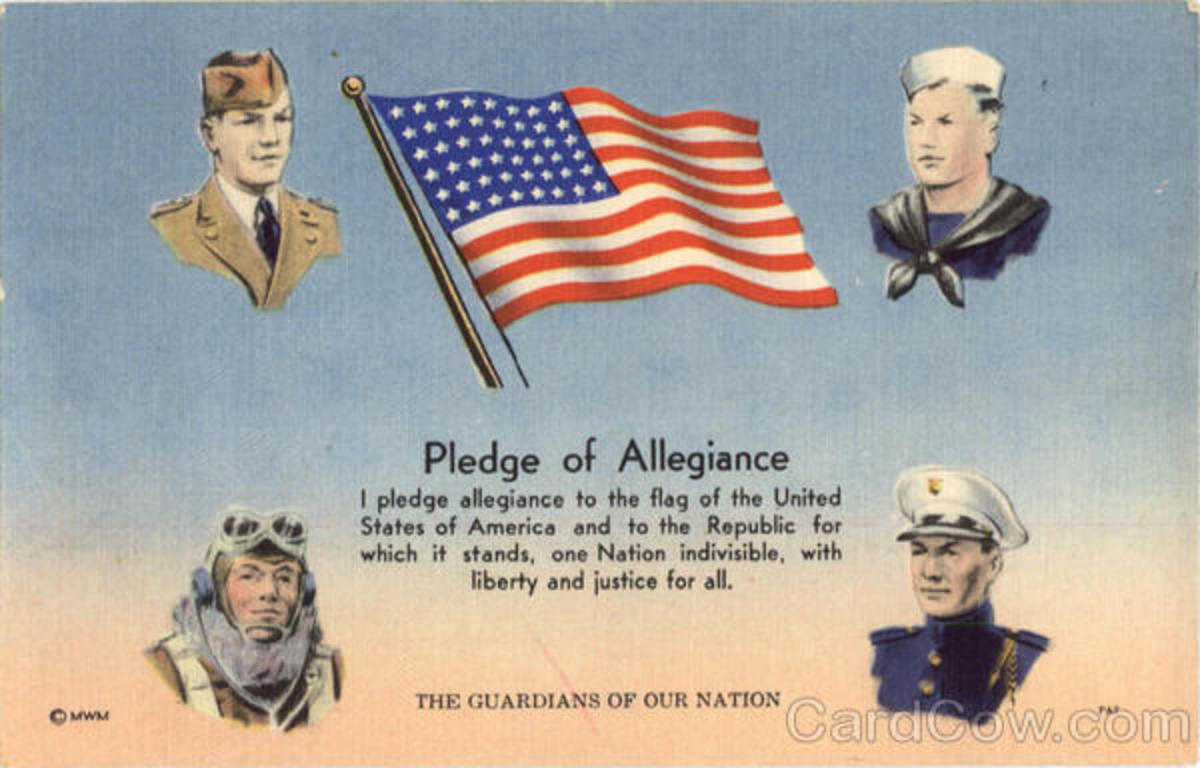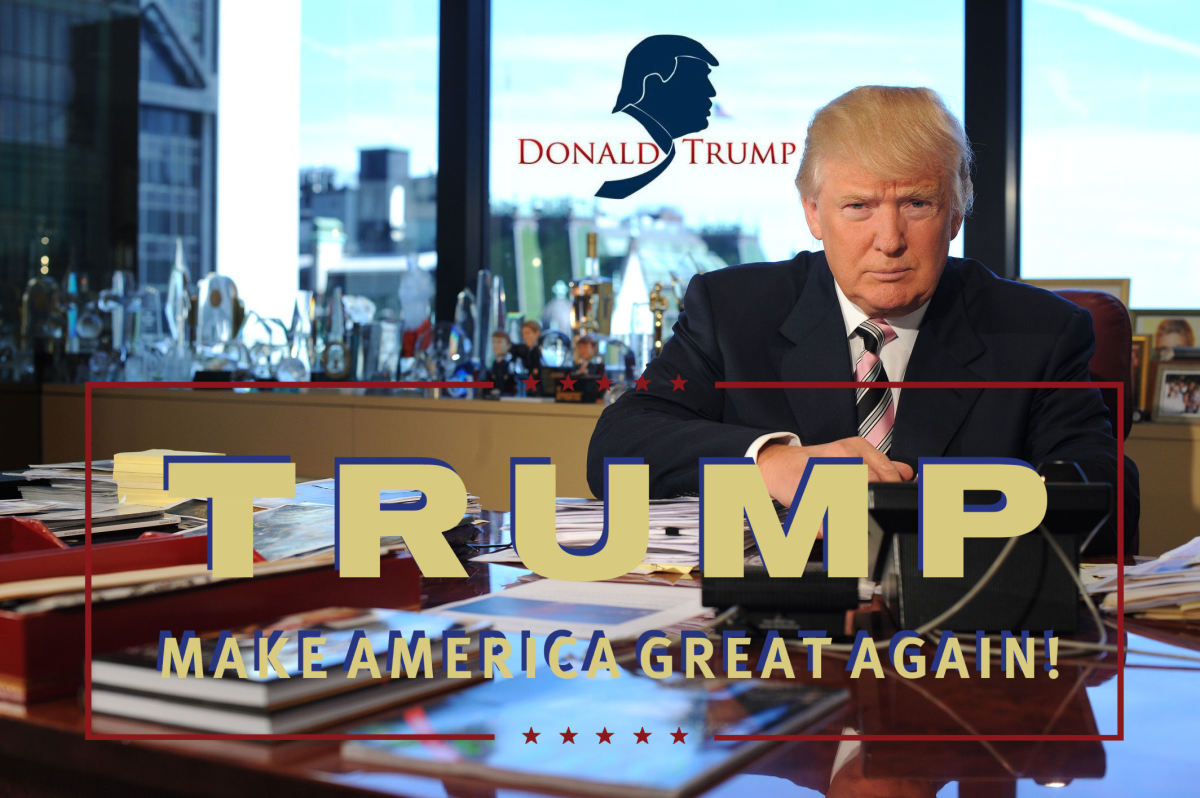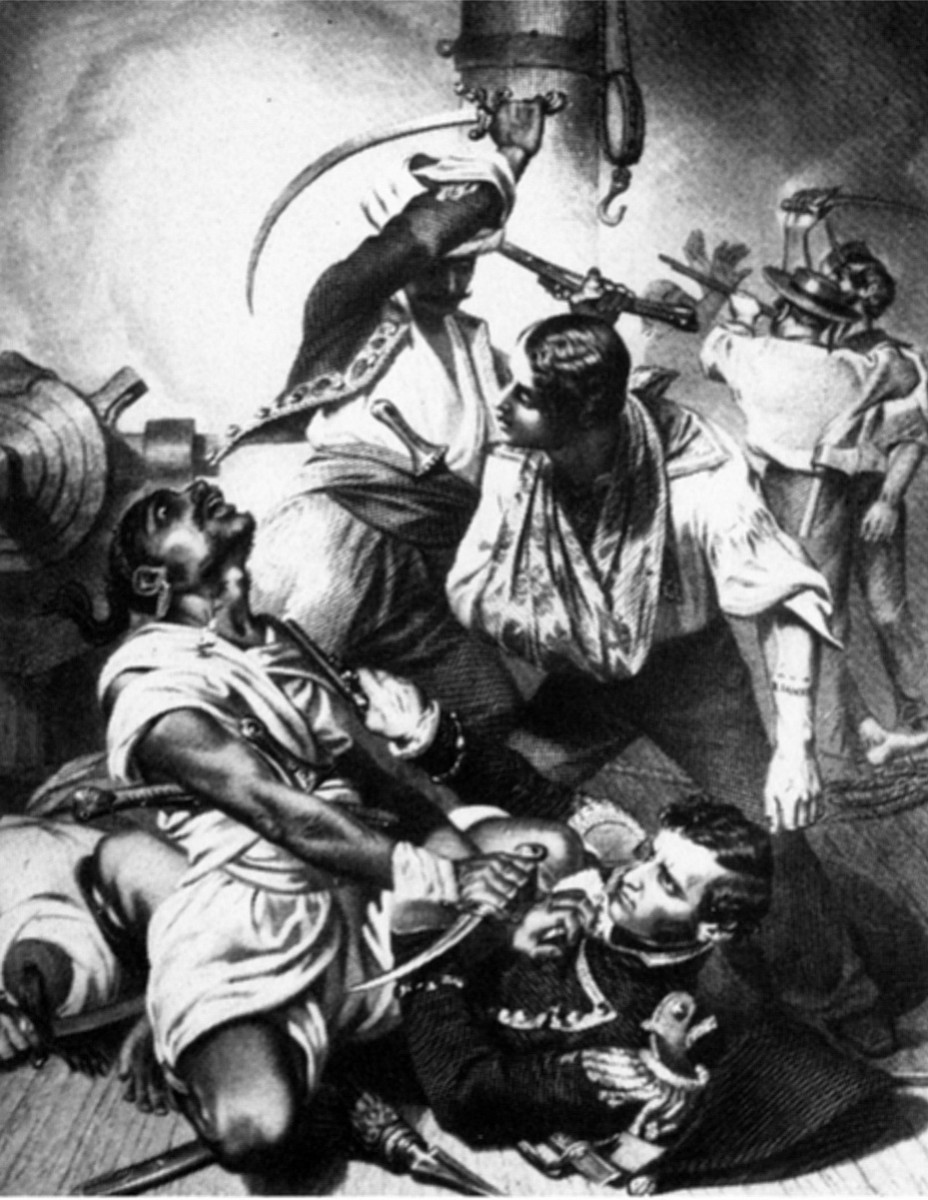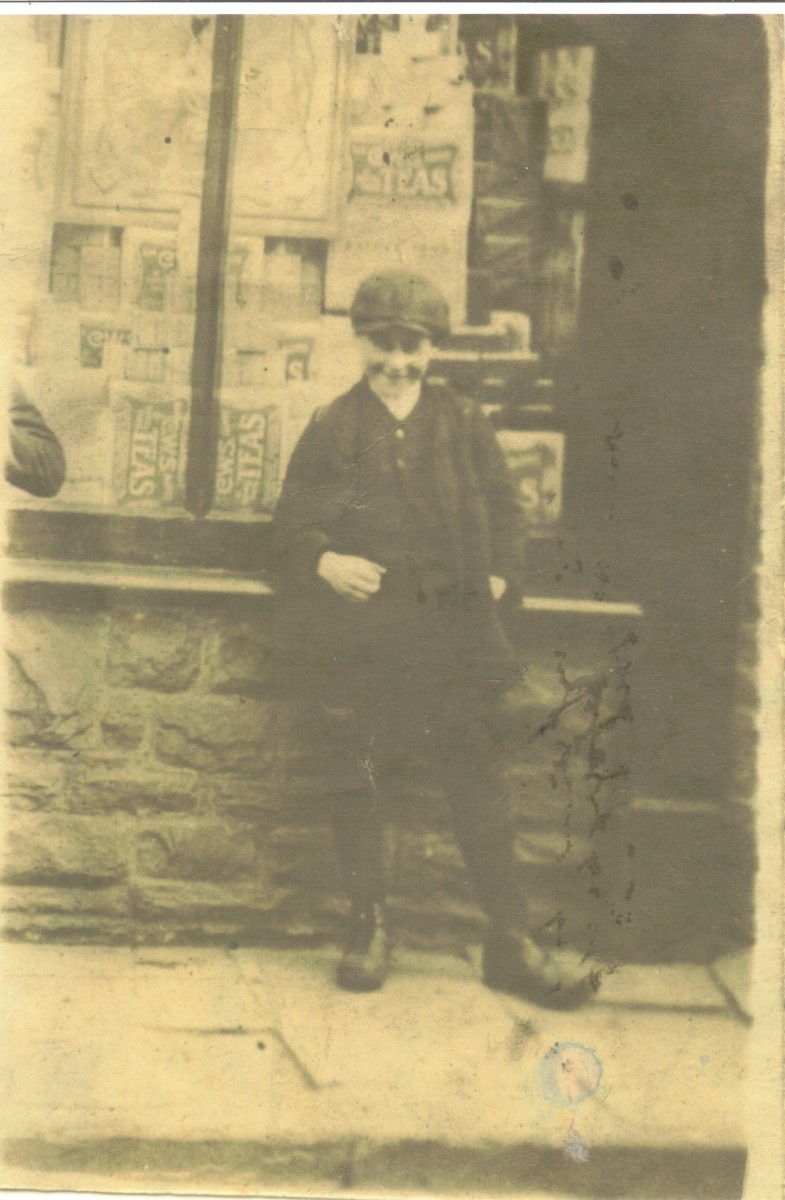- HubPages»
- Education and Science»
- History & Archaeology»
- History of the Modern Era»
- Twentieth Century History
The Pledge of Allegiance: The Addition of "Under God"
The First Amendment
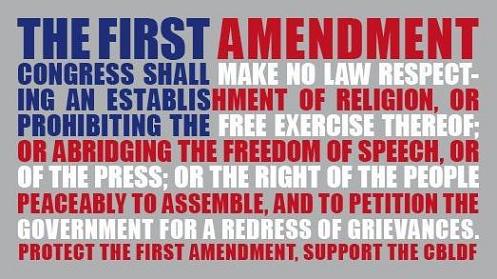
Do you consider yourself religious?
The First Amendment clearly states that people’s religion and government need to be completely separate and no one shall suffer to any degree because of any type of correlation. This means that the salutation to out country should not have messages injected into it regarding religious beliefs.
Many people argue that there is no specification to any one religion so it therefore excludes no one. “A profession that we are one nation ‘under God’ is identical to a profession that we are one nation ‘under Jesus’, a nation ‘under Vishnu’, a nation ‘under Zeus’” (America’s). Many people can identify with some type of god; Therefore, no one can be offended. However, not all people believe in any type of god. “We live in a country where citizens are free to embrace any faith or no faith at all. Government isn’t supposed to endorse generic forms of religion or specific ones” (Lynn). Government politicians can have their own morals and values but they can in no way make suggestions to the public about personal free beliefs. No type of religion is supposed to be established in anyway because people are supposed to have the basic freedoms in that area, ''The combination of God and country approaches a civic religion that is in competition with my religion” (Challenge to Pledge). There should be absolutely no feeling of competition because there should be no standard or establishment of religion. While there are a majority of people that believe in having one overall god, there are many people that have no religion or practice other forms of religion that do not fit into the realm of monotheism.
The Pledge of Allegiance
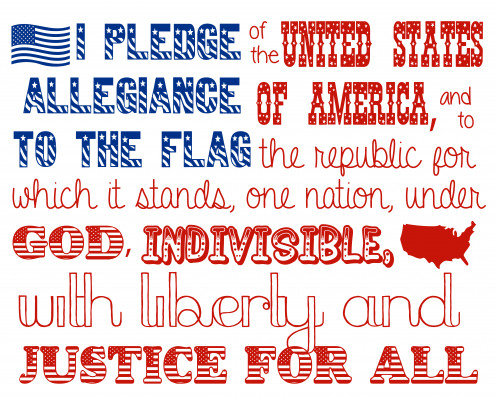
The Pledge of Allegiance having the words “under God” in it conflicts with the free practice of atheism, agnosticism, and believers of polytheism. “Many American citizens refuse to identify with any type of deity and that’s as legal as it is to believe in a certain religion” (Lynn). Our country is called the melting pot because there are all different types of people with all different types of beliefs. Many people in countries other than our own, no matter how many times it is said that America does not have an established religion, still believe that Christianity is our religion because it’s pretty written on most everything, “The US dollar bill says, In God We Trust. When someone takes an oath of office, he or she has to repeat after the person who administers the oath, ‘So help me God‘” (Statesman). Quite often it is overlooked that there is so much wonderful diversity within our country. “It has been argued that the recitation of the pledge that includes one nation under God, is psychologically coercive, because it forces people to accept monotheism as the sole religious path available to them. The pledge not only violates the Constitution but also negates cultural pluralism. It violates freedom of choice” (Statesman”). The present-day government cannot induce suggestions of religious beliefs to people because it devalues the basic things this country was founded on, meaning, freedom from religious debasement.
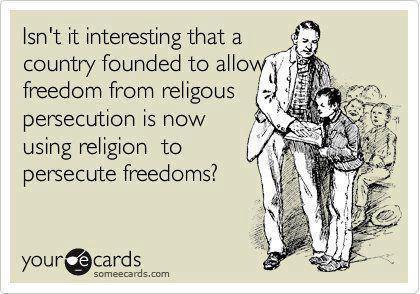
Many people argue that because it is not against the law to refuse to speak the Pledge of Allegiance there is nothing being pushed on people. “The court has avoided dealing with the appropriates of religious references in public schools by stating that students are not compelled to recite the Pledge of Allegiance” (Anderson). While people are not forced to say the pledge it is the oath to uphold the ideals of our country and therefore people should be able to say it unconditionally. “The government should also not link religion and patriotism. A person can express love of their country regardless of his/her religious or philosophical outlook” (Lynn). Everyone in our country is an American even if they don’t fit into traditional religions. So, while many people believe that there is no premise for a negative reaction to these words because it is not forced, there is offense because everyone who is an American citizen should be able to say the pledge to their nation. “Religion ought to be a private matter and should play no role in a daily, government-sanctioned ritual” (Under Whom?).
The government may not legally insert any religious infusions into any recitations or readings meant for the American public. “Congress cannot add any reference to ‘God’ or religion to any government materials because the first amendment explicitly forbids any such inclusion” (undergodprocon.org). The First Amendment leaves no room for religious meddling. The First Amendment reads, “Congress shall make no law respecting an establishment of religion, or prohibiting the free exercise thereof; or abridging the freedom of speech, or of the press; or the right of the people peaceably to assemble, and to petition the government for a redress of grievances” (World Book Encyclopedia, 1011). The overall guidelines for this country were specified many years ago and present-day politics has gone astray and violating any of the amendments is against the law.
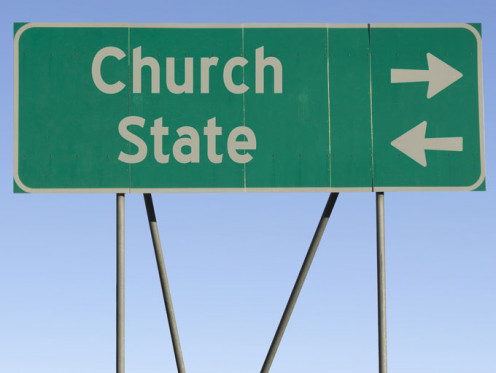
Eisenhower
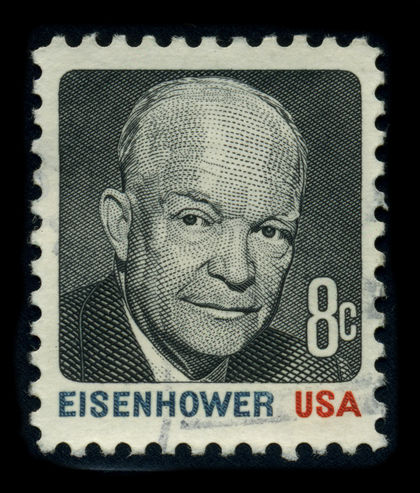
One of the largest reasons people are so adamant about getting The Pledge revised is that it’s said in public schools and contrary to popular belief it isn’t always optional “Last month, a Virginia appeals court upheld a state law requiring the daily recitation of the pledge in public schools” (Under whom?). It’s highly unconstitutional for a law like that to be passed and it’s mildly sick because of how flexibly children’s minds are, ''The problem is that young school children are quite likely to view the pledge as affirming the existence of God and national subordination to God” (Challenge to Pledge). A man named Michael Newdow created quite the fracas a few years ago when he was disturbed that his elementary school-age daughter was told to recite the God-inclusive pledge, “ Dr Michael Newdow, an atheist who complained that his elementary school daughters First Amendment rights to be free from God were violated when she was given no choice but to watch and listen as her state-employed teacher in her state-run school leads her classmates in a ritual proclaiming that there is a God, and that ours is one nation under God” (Statesman). Public schools are meant for everybody to attend; no one is supposed to feel ostracized, because school is a requirement, “It would send a wrong message to impressionable children that if they did not participate in the recitation of the pledge, they might become outsiders” (Statesman). While not all states require recitation of The Pledge in public schools, half of the state legislatures have made its' inclusion a requirement.
The Pledge did not always have religious references in it. The pledge was originally written jointly by James B. Upham (1845-1905) and Francis Bellamy (1855-1931). “The National Flag Conferences of the American Legion extended the original wording in 1923 and 1924. In 1942, Congress made The Pledge part of its code for the use of the flag. In 1954, it added the words ‘under God’” (World Book Encyclopedia, 1058). Many people believe that the phrase should not be omitted because it had always had the phrase in it and that it’s exactly how our fore fathers wanted it, but that, pure and simple, is not true. When it was changed to include religious references, President Eisenhower’s speech was spoken; “ From this day forward, the millions of our school children will daily proclaim in every city and town, every village and rural schoolhouse, the dedication of our Nation and our people to the Almighty” (Lynn). His religious intent was brutally clear. President Eisenhower clearly states that he wants all the people of America, including schoolchildren at public schools, to daily pledge devotion to the ‘Almighty’. The Pledge was satisfactory before it was changed in the 1950’s to include religion. “The Pledge was a purely patriotic exercise until Congress in 1954 made it a patriotic and religious exercise” (America’s). “For the 62 years the pledge survived without God, it served as a communal recitation that bound together all the people who felt obligation to and affection for this nation” (Under whom?).
About forty years ago, at the height of America’s anti-communist behavior Congress, added the words ‘under God’ to the Pledge of Allegiance. There were many other changes in this time period also, “The currency engraving ‘In God We Trust’ is an artifact of the Civil War, and ‘under God’ is a reminder of the height of the Cold War” (Under whom?). It was a petty attempt to link patriotism with religious piety and to distinguish America from the godless Soviets and the communism of the Chinese and North Koreans. America had at one point (before the Cold War) had been allies with the U.S.S.R. but Stalin gradually cut off all contact between The U.S.S.R. and America which greatly frightened our current political heads, it also didn’t help that Stalin had seen to it that communism spread to eleven other countries. Eisenhower wanted |America to be cut off from all ties with communism and The U.S.S.R. This change in The Pledge was a very important point in American history because it was an attempt to stand off as a strong democracy and take a sturdy, stalwart stance against communism. However, it had more to do with fear than logic.
Fear, has a much larger role in this than most people realize though. “Religion tends to hijack civic culture during times of fear and stress” (Under whom?”. Many people in political office have actually admitted that there is a fear to change the aforementioned passage in The Pledge because people may think it’s an attack on God and religion. There is also the fear that it will send the wrong message to other countries that we have alliances with partially based on religious views. Also, people say that it could give countries we are “enemies” with the impression that we are unstable.
The Pledge of Allegiance to our nation excludes certain groups of people, devalues the country’s morals against our government making religious infusements into society, and values multiple laws. It’s surprising to many different groups of people how the anthem to our nation hypocracises most of the values this country was built on and says it upholds, while the people have yet to take action. “The pledge was the bit of civic unity we all shared, words we all knew and could murmur in something approaching unison and harmony” (Under whom?). Whether you are not religious or you are religious you should still try to hold up the basic freedoms and equality of the people in our country.
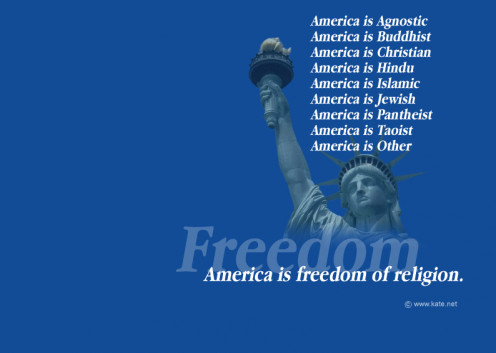
Do you think "under God" should be removed from The Pledge of Allegiance?
Do you believe religious references should be removed from America's money and court room oaths?
Do you believe the future of our population will benefit from less religion in government?
Sources
America’s united for separation on church and state. (2004 May). America’s United for Separation of Church and State. Retrieved on 11/16/2008. www.au.org/site/DocServer/one_nation_Under_God.pdf?docID=154.
“The US is a nation divided for good reasons”. The Statesman. New Delhi: Sep 17, 2008. Retrieved on 11/16/2008. http://proquest.umi.com/pqdweb?did=1555671911&sid=15&Fmt=3&clientId=21102&RQT=309&VName=PQD.
Blum, Susan. World Book of America’s Presidents. (1995). World Book Inc. Chicago, London, Sydney, Toronto.
Knowland, Don. (2004, July). ICFI. Retrieved 11/15/2008. www.wsw.org/articles/2004/jul2004/pldg-jol.shtml.
Lynn, Barry (Reverend). National constitution center. Retrieved on 11/17/2008. www.constitutioncenter.org/education.foreducatores/viewpoints/onenation,undercontroversy.shtml.
Under God.org. Retrieved on 11/16/2008. http://www.undergodprocon.org/pop/1stAmend.htm.
Unknown. “Under whom?”;Home Edition.
Los Angeles Times. Los Angeles, Calif.: Sep 18, 2005. pg. M.4 http://proquest.umi.com/pqdweb?did=897948061&sid=8&Fmt=3&clientId=21102&RQT=309&VName=PQD.
Court Rejects Challenge to Pledge of Allegiance
New York Times. (Late Edition (East Coast)). New York, N.Y.: Aug 11, 2005. pg.A.19.http://proquest.umi.com/pqdweb?did=880301961&sid=9&Fmt=3&clientId=21102&RQT=309&VName=PQD.
World Book Encyclopedia. (1995). World Book Inc. Chicago, London, Sydney, Toronto.


